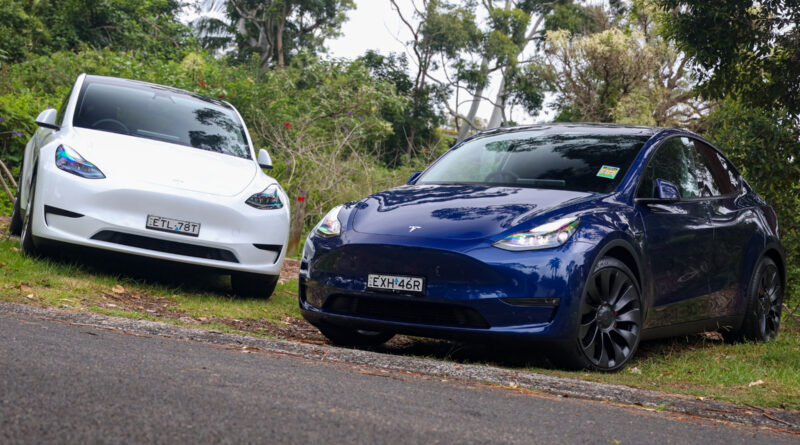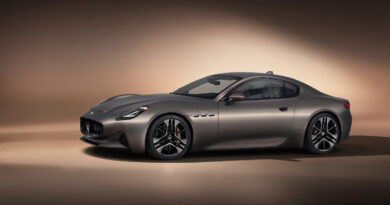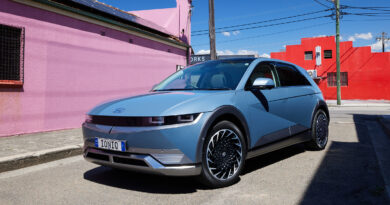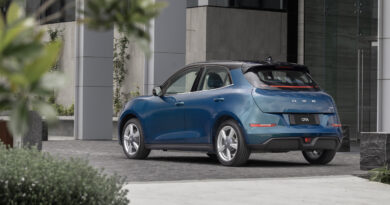Electric vehicle price plummet: New research shows values of used Teslas, MGs, BYDs nose-diving in Australia as bargains abound
New research that has crunched the data on some of Australia’s best-selling EVs suggests that used values are plummeting after two years of ownership.
Scouring the classified ad listings on Gumtree, Autotrader and CarsGuide, researchers from CarsGuide concentrated on seven popular used EVs that included the BYD Atto 3, MG ZS EV, the Nissan LEAF and best-selling Tesla Model 3 and Model Y, as well as the Model S and Model X.
Monitoring the ads over a 24-month period, the Tesla Model 3 was the most-listed electric car with 7795 listings from January 2023 to December 2024. Next was the Nissan LEAF, which has been on sale in Australia for ten years (5633), with the MG ZS EV in third place (3045).
READ MORE:
Back in January 2023, the average list price for a Tesla Model 3 was $65,990 but come December 2024 that had fallen to just $46,705 – that figure represents a significant 30 percent drop in used value.
The Model Y’s drop was bigger still, dropping from $79,950 (Jan ’23) to $53,987 (Dec ’24) — a 36 percent drop.
Despite the drop off in value of Model 3 and Y listings, unlike other brands, the actual number of Tesla adverts remained static in their number over time, suggesting Teslas are generally selling faster than other EVs, although CarsGuide says more data is required.
Even more affordable EVs like the BYD Atto 3 have seen a big knock to median used car prices with average prices dropping 29 per cent from $51,990 to $36,990 over the two-year period.
The MG ZS was billed as one of Australia’s cheapest EVs, but it’s resale value has taken a hit, too, dropping from $48,071 in January 2023 to $34,300 in December 2024.
Bucking the trend though was the Hyundai Kona, with researchers noting the release of a second-generation model has actually seen used prices increase.
The new data all adds to less demand for used EVs, which is driving down average selling prices fast – a trend that’s already been noted in the more mature European markets.
Suggested ways to boost the used EV market in Europe include government-backed battery health certificates to reassure conservative second-hand car buyers, extended incentives to older electric cars, plus introducing a campaign to inform buyers of the benefits of buying used EVs over a typical petrol or diesel.
Longer-life batteries capable of more than one million kilometres could also ignite interest in electric cars among the more cautious.
One final piece of the puzzle that is already being developed by Nissan is introducing mass manufacturer buy-back deals by the car-maker that could see your own car’s infotainment system let you known when there’s offer on the table waiting for you at your local dealer.
Motivating the Japanese brand to snap up old LEAFs is the growing demand for second-life batteries to be used in both domestic or commercial operations that run on renewables like solar and need energy storage.





It just shows thee yuppies that brought them fell n there same as wheen they brought a plasma TV.
When you can spell and compose a coherent sentence, I might tell you that you can make moron status.
The MG ZS EV was selling for an average $34,300 in December? Given they were selling for $34,990 brand new last year, I think that’s pretty spectacular resale.
My plasma TV is still going strong. Resale value only matters to those who buy an item for boasting rights rather than practicality.
Evs lose value fast because the cost of batteries is falling so fast leading to rapidly falling cost of new EVs.
EVs do not wear out as fast as ICE vehicles so there is no pressing need to buy a new vehicle after only 2-3 years worth of service.
Some of the very first models did not have adequate battery management systems and should be avoided but a used EV manufactured since 2020 will perform as well as a unit straight off the showroom floor and represents a bargain to assent potential buyer.
Great Balls of click bait, you got me. Co.pare the second hand price of any car after a year and you get similar results. Go figure.
With depreciation rates like those indicated (in the $20k to $30k area), I’ll happily continues in with my automotive mode of operation that I adopted some 25 years ago knowing full well that I’m streets ahead in $ value. I by high end older low milage cars for $2k to $4k that idiots once paid up to $300k each for and drive around in absolute luxury until it’s time for the next one. At an electric car depreciation rate of $30k over 2 years, I’m well out in front even after paying higher running costs on my current 30yr old Merc and my ’99 V8 Range Rover!!
Two years ago was the height of secondhand car sales. A model y, model 3, an atto were all selling as second hand basically for the same price as new because you could get them there and then and not wait months for delivery! Compare against non ev cars you’ll find the same thing. Pointless article. Primary school analysis. Represents the dangerous trend
of quantity over quality content. At worse misleading us all. At the best wasting our time!
Thanks Qwipkee, this short comment is more insightful than the article, though laden with stats.
Lazy reporting, waste of time.
Agreed.
If someone feels they have had enough of their EV, I would love to own one but can’t afford to.
In January 2023, the oldest Atto 3 in Australia could be no more than 4 months, while the oldest Model Y here could be no more than 8 months old.
The average age of the mentioned second hand EVs has also increased by more than a year over this time, and the new purchase prices have also dropped significantly. Nothing in this article this is alarming, surprising, or unexpected, just normal depreciation and second hand pricing for newly introduced cars in a highly competitive market.
There must be some not very wise people writing this on electric value plummeting?.Battery replacement after 4,5 years and you have to come up with 15,20 grand to keep your electric car going?.Sure brand new and 2 years own electric car great.I am sure the writer of this article and other normal people just can’t live like that in 8 10 years there is going to be a massive scrap pile of still good cars but who with common sense willl pay 15 thousand up to keep their car going after 6,7 years.I sure hope that is wrong but u could be not seeing some obeviuous things that is coming with eietric cars where they at moment.
In Australia, most electric vehicle (EV) batteries come with an 8 to 10-year warranty, or 160,000 kilometers, whichever comes first. However, some manufacturers offer longer warranties. The warranty covers significant loss of capacity, not just failure.
Talk of costly battery replacement after 4-5 years is utter nonsense.
Even for an older vehicle or one with exceptionally high mileage, a replacement battery should cost nothing like $15,000.
I really feel for avenge person out there bought electric car and yes there value will go down in value massively.Spouse the main elephant in the room,6,7 years electric car battery will be coming to end of life.15 thousand up they will just need brand new battery’s and your average person out there can’t do that.I hope that I am wrong, lets see where things go in electric car market?
I’m not aware of even a skerrick of evidence that EV batteries only last 6-7 years (other than maybe the first generation of Leafs). That’s inside the typical 8 year battery warranty, so basically every manufacturer would eventually lose a heap of money on every car they sold. Putting aside major tech improvements (eg solid state batteries), the current slow takeover of NMC with LFP chemistry is a good example of how battery longevity is getting better all the time. But it seems some people would rather always see the EV “glass” as half empty rather than half full—and rising.
The issue is that the price of a new Tesla, MG, etc has dropped significantly as more brands and models come onto the market, and that EV are now a reasonable if not better option than an ICE. You mention the second hand Tesla Y has dropped 30% in their value to only $53k, but the reality is the new price starts at $55k. The issue is not that they have little resale value, but that new EVs have now become more the norm and prices have dropped to reasonable prices to buy. Those that brought early paid premium prices. Those that now buy a new EV are buying at more realistic prices.
And considering that those people with large solar systems at home will pay little to nothing for recharging their EV, it makes them a very attractive option, not to mention cheaper and less frequent servicing costs.